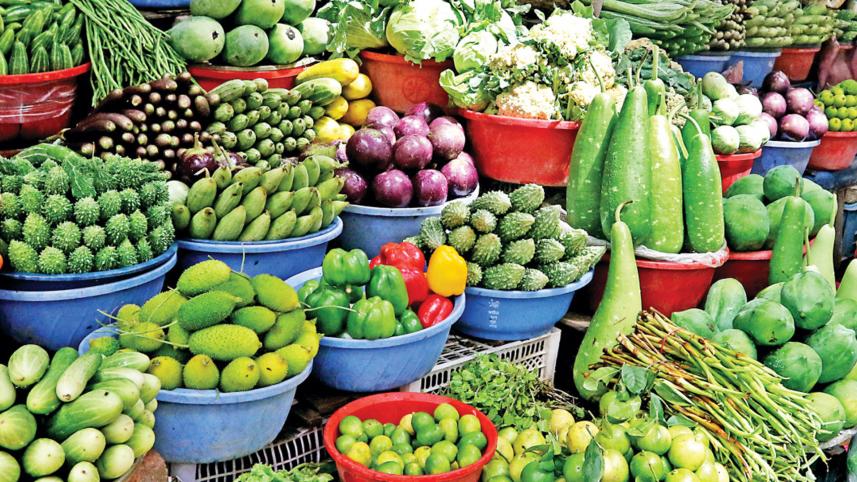Vegetables retail for high prices, farmers get nearly nil

A recent report by this daily revealed how, despite a 10.7 percent higher yield than last year, vegetable farmers are having to bear the brunt of selling their produce for tragically low prices while urban kitchen markets collect hefty profits for the same. Lakhs of farmers up north are bracing themselves to suffer losses amounting to tens of thousands to even one lakh taka. The reason for such huge losses to vegetable farmers is the reason now familiar to all in business: the lockdown and its impacts on supply chains.
Before the lockdown brought about by the Covid-19 second wave, Hashem Ali from Bogura was selling his courgettes for Tk 25 per kilogramme. Now the best he can get for the same quantity is Tk 7. Similarly, Jashore's Jasim Uddin has to now sell a kilogramme of his pointed gourds for at most Tk 5 and each bottle gourd for Tk 10-12. This used to be Tk 25 and Tk 30-40, respectively, before the lockdown set in and affected his earnings. The scenario is the same for all vegetables in the north, where farmers are having to sell them off for at least 50 percent less than what they would get before. Many farmers fear that they may not be able to cultivate vegetables in the winter season either, due to these losses which are making it difficult for them to pay their labourers and maintain their land.
Meanwhile, countrywide movement restrictions have driven up the prices of vegetables in city kitchen markets, which is a burden on the already hard-hit consumers of the middle and poorer classes. Though wholesale traders are able to buy vegetables from farmers at dirt-cheap prices, transporting them to the capital costs around three times more, resulting in sky-high retail prices. The number of vegetable-laden trucks coming into the city is also down from 50 to 10 daily, according to the president of South Bengal Vegetable Traders Cooperative Society.
Certain decisions made by the government as of late (such as the one regarding the reopening of export-oriented factories) has sadly made it abundantly clear where on its priority list workers of poorer classes fall. The Department of Agricultural Extension estimates there are at least 80 lakh vegetable farmers in Bangladesh, working through the seasons to ensure the country has healthy food to put on all its tables. Yet, from these farmers to migrant workers, we have a tendency to neglect the ones who do the most for our economy and wellbeing through their work.
Vegetable farmers should not have to suffer the brunt of supply chain disruptions. We believe they should not only be compensated duly for their losses, they must also be protected from similar losses during any future lockdowns. We would urge the government and concerned authorities to prioritise the survival of those who are most vulnerable to lengthy lockdowns.



 For all latest news, follow The Daily Star's Google News channel.
For all latest news, follow The Daily Star's Google News channel.
Comments